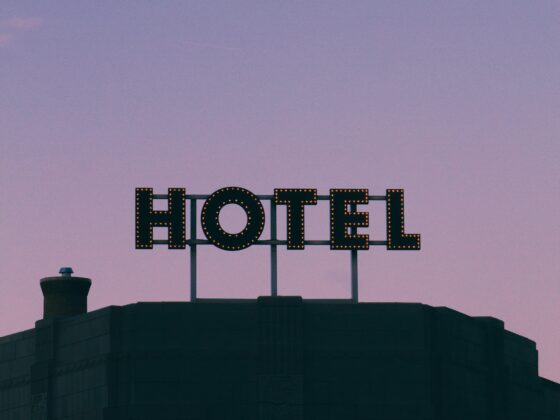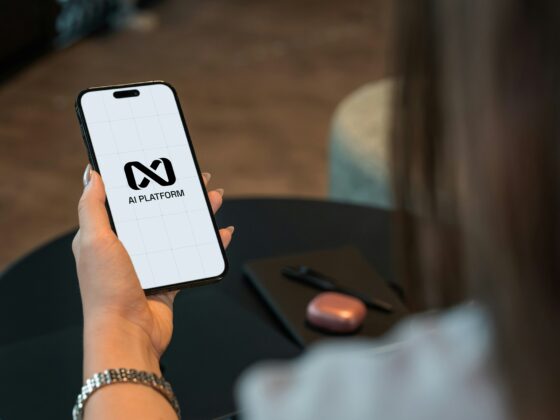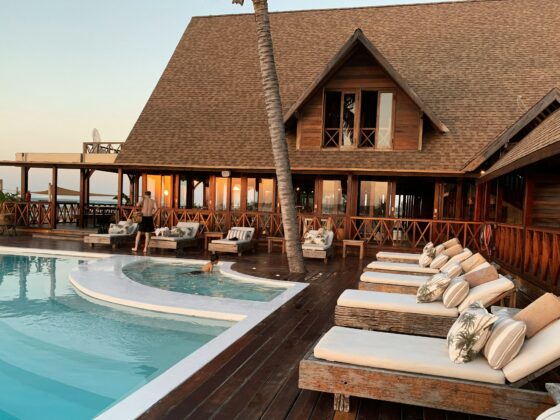There are several types of hospitality technology solutions that are available in the market. Each of them has its own characteristics. But when integrated, they help a hotel in reducing costs, increasing operational efficiency, improving staff competence, and in serving guests better.
In this post, we will discuss some of the hospitality technology solutions and how they are different from each other.
Understanding different hospitality technology solutions and their roles –
Hotel PMS
You can call it a Hotel PMS, hotel property management system, hotel property management software, hotel management system, hotel management software, or hotel software. It is a software application that helps you manage your daily operations. It automates and streamlines hotel operations across all the departments.
Your front desk staff can use a Hotel PMS to accept, cancel, and modify reservations based on your guests’ requirements. They can assign rooms to guests, check them in or out using the front office console/module of a hotel property management system. A Hotel PMS also helps them delegate housekeeping tasks, set up and run POS outlets, generate guest folios, etc. with ease.
With a hotel management system in place, you can ensure a seamless flow of interdepartmental information which helps you to better coordinate operational functions across all the departments. Be it F&B costing, giftshop, materials management, maintenance management, financial accounting management or HR & Payroll management, a Hotel PMS streamlines everything across all the departments.
Not only this, a Hotel PMS plays a crucial role when it comes to helping you with all crucial business-related data, otherwise known as KPIs. This happens through a process called Night Audit. Hotel night audit evaluates and closes daily cash flow into and out of the hotel’s account and it ensures the rollover from one business day to the next day. Moreover, it helps you generate several key reports so that you get to understand what works well for you and what doesn’t.
Another important functionality of a hotel software is efficient rate management. It analyses several factors including demand, season, occupancy forecast, and competitor pricing, etc. and suggests you the right room rate so that you can get more out of your room revenue. It also allows you to create relational rates, multiple rates for a single stay, set up and change daily/monthly rates.
PMSl PMS
There are three types of Hotel PMS –
Server-based
It is also known as on-premise or legacy Hotel PMS. These are installed at the property level and you have to access the application via desktops. With this variant, the cost of software ownership goes up as you have to invest in servers and a dedicated IT team. Plus, you have to spend on software upgrades and staff training. Such PMSs neither help you gain mobility and nor allow access the PMS from remote locations. They lack integration capabilities.
Hybrid cloud
Hybrid hotel management software is hosted at your property level or remotely. In this arrangement, certain functionalities will still stay on-premise. However, the web front-end nature of the application will allow you to access the PMS via browser, tablet and mobile from anywhere you want to.
Web-native cloud
This is a new-age and a pure cloud-based hotel software. With this, you don’t have to spend on servers, IT team, staff training, and upgrade costs, etc. You have the liberty to access the Hotel PMS from anywhere. This variant of hotel property management software is more agile and flexible. Most importantly, it gets integrated with third-party solutions.
Channel Manager
A channel manager is a software that helps you distribute/update your hotel’s rooms and rates on all the connected Online Travel Agencies (OTA). For example, you sell your rooms on 5 OTAs. You can’t just set one rate and allocate a certain number of rooms to these OTAs and forget about it. This would lead to overbooking and double booking. So, in this context, you need to update your availability and rates on all 5 OTAs as your room availability and rates keep changing. Now, this is where a hotel channel manager plays a critical role.
Without a channel manager, managing availability and rates on all 5 OTAs would be a difficult task for you. You have to log into each of the OTA’s extranet to update your rates and inventory. This is a time-consuming process and does not guarantee a real-time update. However, if you have a hotel channel manager software, you can do this easily while saving time and avoiding errors. You just need to log into channel manager and make required changes and they will reflect on all the connected OTAs.
OTAs
OTAs are third-party agencies who sell hotel rooms on their websites to guests. A guest logs in to an OTA, selects a hotel, checks out rates and availability before making the final reservation. OTAs help you sell more rooms via their websites – called indirect booking. For each booking you receive from an OTA, you need to pay a booking commission based on the agreement. You can choose to work with leading OTAs to drive more indirect bookings and you can even select popular OTAs in a specific region as part of your online distribution effort.
Booking Engine
A hotel booking engine helps you sell your hotel rooms and accept reservations via your brand website. This software helps you generate more direct bookings and thus, you get to realize more room revenue. Not only this, you can leverage the power of a booking engine to get bookings from your hotel’s Facebook page. Apart from allowing you to ensure secured monetary transactions via payment gateways, it also automatically captures guest data. The booking engine you select for your business must help you with multi-currency payment option, multi-language support, multi-device compatibility. This should also send out the booking confirmation emails to guests in real-time.
Now let’s see what happens when you have an all-in-one Hotel PMS that gets integrated with a channel manager and booking engine
The Hotel PMS and channel manager integration is quite crucial to ensure the success of your online distribution effort. When there is a seamless and two-way integration a Hotel PMS and a channel manager, rates and availability from the Hotel PMS will automatically be pushed to the channel management platform for distribution across all the connected OTAs. Similarly, bookings on OTAs would also get instantaneously updated on the Hotel PMS delivered through the channel manager. This ensures that there is no discrepancy in the availability of rooms on various channels. Similarly, this integration updates reservation cancellations and modifications on all the sales channels. This helps you know in real-time how many rooms you have to sell. Considering this, you can either have a plan to overbook your property with caution or you can completely avoid overbookings.
Similarly, the integration between your Hotel PMS and a booking engine can help you a lot when you plan to grow your direct bookings. As soon as you receive a booking through your website, the Hotel PMS gets updated instantly. In case of booking modification, room upgrade or cancellation (only bookings coming via the booking engine), this integration updates the Hotel PMS. This enables your reservation staff/front desk staff to know your hotel’s availability and room status in real-time. This too, helps you avoid overbooking and double booking.
Now you know what a Hotel PMS is. We have also explained the functionalities of a channel manager and how a booking engine works. Plus, we have also looked into the power of an integrated Hotel PMS. So now, if you are looking for a hotel property management system, you should look at its integration capabilities. Not all PMS can guarantee you seamless integration with channel manager software. However, smart and comprehensive ones like Hotelogix can do the job for you.
With Hotelogix, you have to liberty to choose from a wide range of channel managers like Vertical Booking, Hotel Runner, SiteMinder, STAAH, RezGain, MaxiMojo, AxisRooms, Omnibees, and Busy Rooms, etc.








